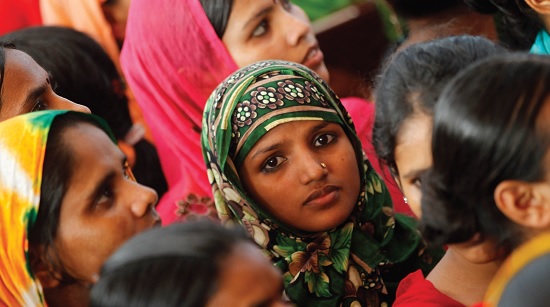Responsible business conduct and competition: The OECD Guidelines for Multinational Enterprises and responsible supply chain management
|
Surprised looks with colleagues or students are commonplace when I observe that the OECD plays an important part in the promotion of responsible business conduct (RBC), not just in OECD countries, but also globally. RBC is OECD “speak” for corporate social responsibility, corporate sustainability and other terms indicating an expectation that businesses take responsibility for their impact on society. The OECD’s key normative instrument for RBC, the Guidelines for Multinational Enterprises, and the remedy institution that adhering countries commit to establishing, the National Contact Points (NCPs), are relevant to help offset some of the social costs that competition causes to employees and communities. The guidelines provide norms of conduct for MNEs and for how they should act to avoid harmful impact caused by their supply chains.
Revised several times since first adopted in 1976, the MNE Guidelines provide normative standards regarding human rights, labour, employment and industrial relations, environment, bribery, consumer concerns, science and technology, competition and technology. The MNE Guidelines also apply to institutional investors, including minority shareholders. Jurisprudence–“case law”–emerging through complaints–“specific instances”–handled by NCPs elaborates the practical implications of the MNE Guidelines for companies and investors, within and beyond the sector and country concerned by each case. Similarly to the extraterritorial reach of the guidelines beyond MNE home countries, NCPs may also deal with business conduct arising in non-OECD countries or other countries having adhered to the MNE Guidelines–provided a connection to that state.
A case that was recently handled by the Danish NCP, of which I am a part-time member, highlights the pertinence of OECD’s MNE Guidelines at a time when SMEs too have transnational operations, as well as of the evolving guidance developed by NCPs. The case concerned a Danish textile company that sourced from a supplier in the Rana Plaza building at the time of its collapse in 2013.
Worried garment workers after the Rana Plaza disaster, from OECD Observer No 299 Q2 2014, www.oecdobserver.org/responsiblebusinessconduct
The MNE Guidelines are recommendations from governments to companies operating in or out ofcountries (whether or not OECD members) adhering to the guidelines. With the 2011 revision, the MNE Guidelines adopted the risk-based due diligence approach. This is a process for companies to identify, prevent, mitigate and account for their impact on society. Whereas corporate legal or financial liability due diligence aims at protecting the company against harm, risk-based due diligence is about protecting society against harm caused by the company or its business relations. Of course, if done well, it also protects the company against liability or reputational harm.
The case of the Danish textile company concerned the adequacy of the company’s due diligence to prevent harm directly linked to its operations by a business relationship. The NCP found that the company did not apply processes for due diligence in compliance with the OECD’s MNE Guidelines. In particular, the company failed to make demands that its supplier ensure employees’ human and labour rights, including through adequate steps to ensure occupational health and safety. As to whether the company had acted in consistency with what it argued to be buyer practice concerning building inspection, the NCP observed that practice by itself may be indicative, but not conclusive regarding the scope of risk-based due diligence. In other words, a company must think and act for itself in regard to demands on suppliers and take appropriate measures to ensure health and safety in the workplace. Thus, the NCP statement elaborates on the practical implications of the MNE Guidelines and due diligence for companies in the textile and other sectors for the future, regarding building safety and supply chain management.
The collapse of the Rana Plaza building was a wake-up call in many OECD countries concerning the human and social costs that can be the price for the quest for economic gain that drives much competition. Global companies have long taken advantage of wage differentials and weak regulation to keep costs low. Concerns with labour and human rights have been strong if too often ineffective drivers of corporate change and the conditions for competition. The textile sector is not unique in competition causing adverse social or environmental impacts. The agricultural industry and mining are among the sectors in which adverse social and environmental impacts of business activity are regularly reported. Enhanced knowledge of OECD’s MNE Guidelines may contribute to promoting RBC in such transnational economic activities.
This contribution is written in the author’s academic capacity and does not necessarily reflect the views of CBS’s management or the Danish NCP.
References and further reading OECD (2014), “Scope and application of ‘Business Relationships’ in the financial sector under OECD’s Guidelines for Multinational Enterprises”, OECD Global Forum on Responsible Business Conduct, see https://mneguidelines.oecd.org/globalforumonresponsiblebusinessconduct/GFRBC-2014-financial-sector-document-2.pdf Farhana, Khadija (2014), “Ready-made garments in Bangladesh: No longer a forgotten sector”, in OECD Observer, see http://oe.cd/Bj Final Statement on Specific Instance notified by Clean Clothes Campaign Denmark and Active Consumers regarding the activities of PWT Group of 17 October 2016, see http://businessconduct.dk/final-statements Krugman, Paul et al. (2014), International Economics: Theory and Policy, Global Edition, 10th ed. Online: Pearson. Nelson, Jane (2014), “Corporate Social Responsibility: Emerging good practice for a new era”, in OECD Observer, see http://oe.cd/Bi Nieuwenkamp, Roel (2014), “Corporate leaders: Your supply chain is your responsibility”, in OECD Observer, see http://oe.cd/Fw Ruggie, John (2013), Just Business - Multinational Corporations and Human Rights. Boston: W.W. Norton. United Nations Human Rights Council (2011), UN Doc. A/HRC/17/31. entitled ”United Nations Guiding Principles on Business and Human Rights (UNGPs)”
|
Karin Buhmann © OECD Yearbook |
Related Documents



